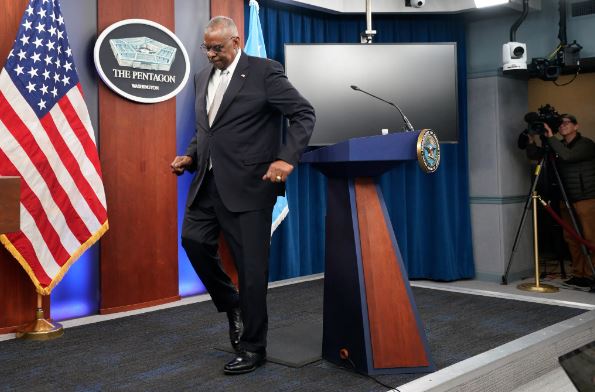Defense Secretary Lloyd J. Austin III was hospitalized on Sunday afternoon for what the Pentagon described as “symptoms suggesting an emergent bladder issue,” according to an announcement made by the Pentagon. The incident prompted Mr. Austin’s transfer to Walter Reed National Military Medical Center in Bethesda, Md., at 2:20 p.m., as revealed by Pentagon spokesman Maj. Gen. Patrick S. Ryder. Notably, both the deputy defense secretary and the chairman of the Joint Chiefs of Staff were notified, along with the White House and members of Congress.
A subsequent statement issued on Sunday evening by General Ryder disclosed that Mr. Austin, aged 70, had delegated the functions and duties of his office to the deputy defense secretary, Kathleen H. Hicks, around 4:55 p.m. These announcements were evidently aimed at promoting transparency regarding Mr. Austin’s medical condition while emphasizing that key officials across the U.S. government had been informed.
Last month, Mr. Austin faced significant backlash when he spent several days in the hospital receiving treatment for complications arising from a recent prostate cancer surgery. Criticism ensued as it was revealed that he had initially concealed his hospital visit from top administration officials, including President Biden, the White House national security adviser, the secretary of state, and senior Pentagon officials. Moreover, Mr. Biden expressed confidence in Mr. Austin but acknowledged a lapse in judgment on Mr. Austin’s part for failing to inform him of his absence.
Having retired as a four-star Army general and serving for over 40 years in the military, Mr. Austin assumed the role of Defense Secretary in 2021. Throughout his career, he has maintained a low profile and preferred to keep many aspects of his life out of the public eye.
General Ryder assured that the Pentagon would provide updates on Mr. Austin’s condition as soon as possible, underscoring the commitment to transparency and accountability amidst concerns regarding the Defense Secretary’s health.

